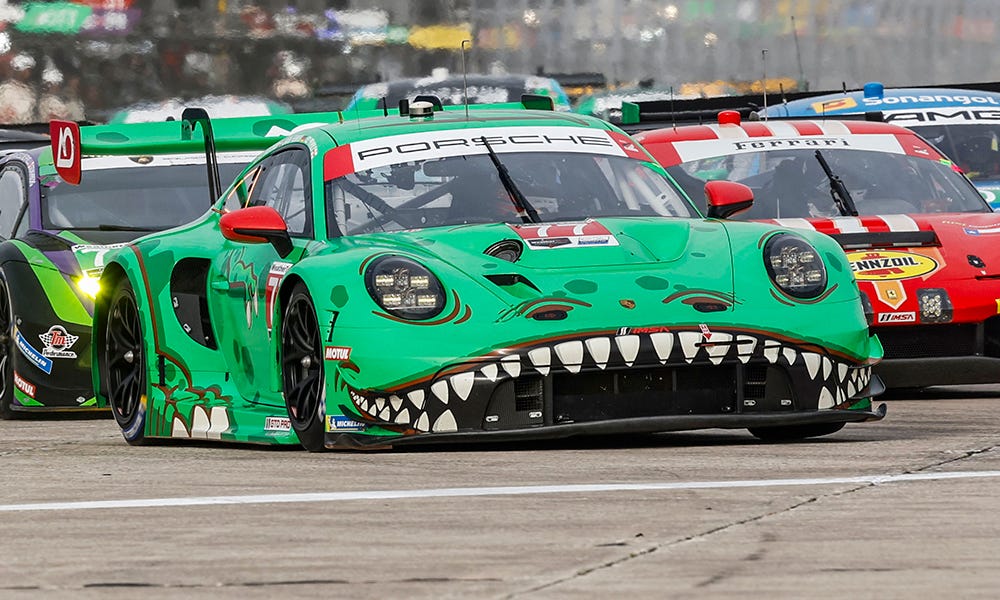Insight: How Porsche Has Prepared for IMSA's GTD Torque Sensor Revolution
A look at how Porsche is leveraging its knowledge from LMGT3, LMDh amid the introduction of torque sensors for the GTD Pro/GTD classes beginning next year...
The GTD Pro and GTD classes of the IMSA WeatherTech SportsCar Championship are set for a significant change in 2025, with the introduction of mandatory torque sensors equipped on all of the GT3-spec machinery.
The measure, aimed to increase the accuracy of Balance of Performance, comes one year after the introduction of virtually the same system, supplied by MagCanica, into the FIA World Endurance Championship’s new LMGT3 class and the use of the sensors in prototypes built to the LMH and LMDh regulations since the launch of the Hypercar class in 2021.
While the application of the sensors, which are attached to the driveshaft to measure torque and generate information on power output and energy usage, has been a contentious topic, largely due to costs, manufacturers such as Porsche are embracing its integration into the production-based ranks of the WeatherTech Championship, owing to the increased competitiveness of the formula.
"In the earliest of days, the car that won was only in the garage twice during a 24-hour race,” says Porsche Motorsport North America President and CEO Volker Holzmeyer. “Today, if your car breaks once, you're out of the race. I think it's getting more and more competitive. The drivers are getting better. Everybody has the perfect lineup. Therefore, I think every little tenth of a second matters much more, even in endurance racing.
"That's why I think BoP is getting more and more important. In the earlier days, there was no BoP, and it was fine! But it's all changed through the history and the competitiveness and professionalism.
"That's why I think we are now in a spot where two-tenths makes a huge difference. That's why we think, long-term... Yes, adding costs in general is just bad. There's no good thing about it. It makes this sport, which is already expensive, even more expensive.
"But if you spent that money and you have the feeling that you don't have a shot, that's not an option either.
"We want to keep the different car concepts. Rear-engined, front-engined, mid-engined. Turbocharged, naturally aspirated. Everyone's moving their engines towards the middle but there's still some boundaries and concepts, and therefore to keep this variety going, that seems to be the step we have to take.
"If everyone goes to a mid-engined turbocharged, then we end up with a spec series. That's not where the fans want to go or we want to go."




